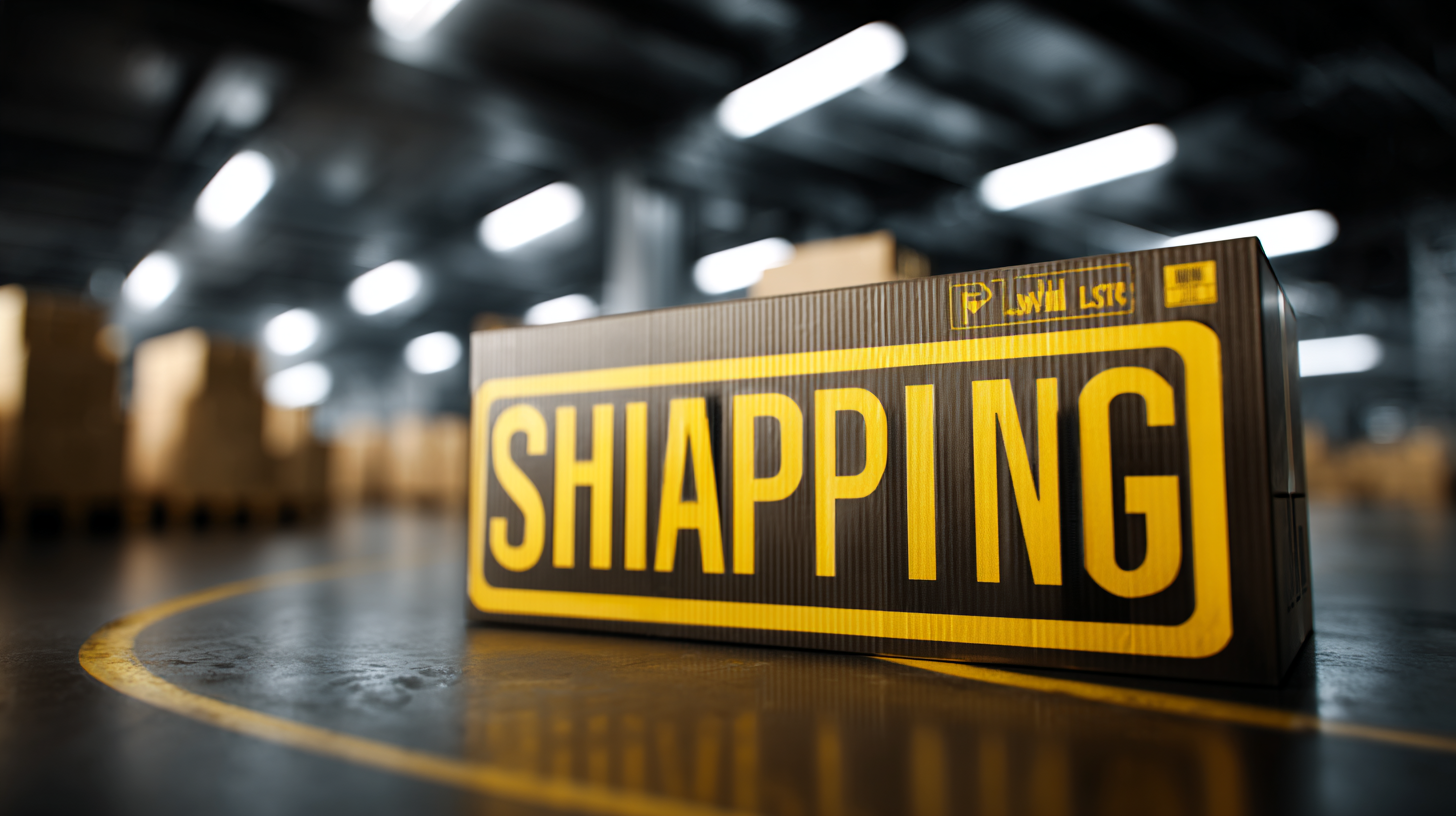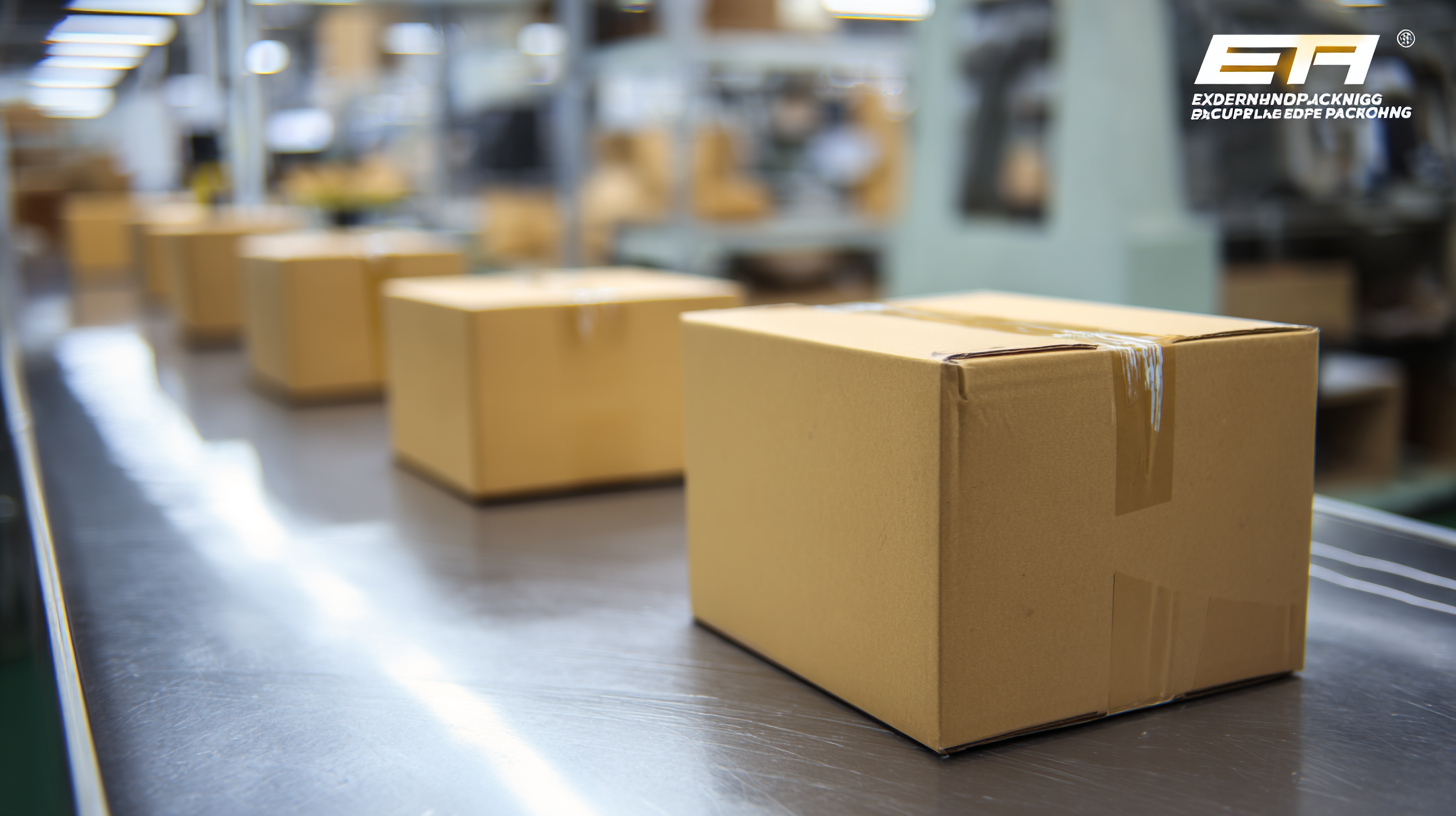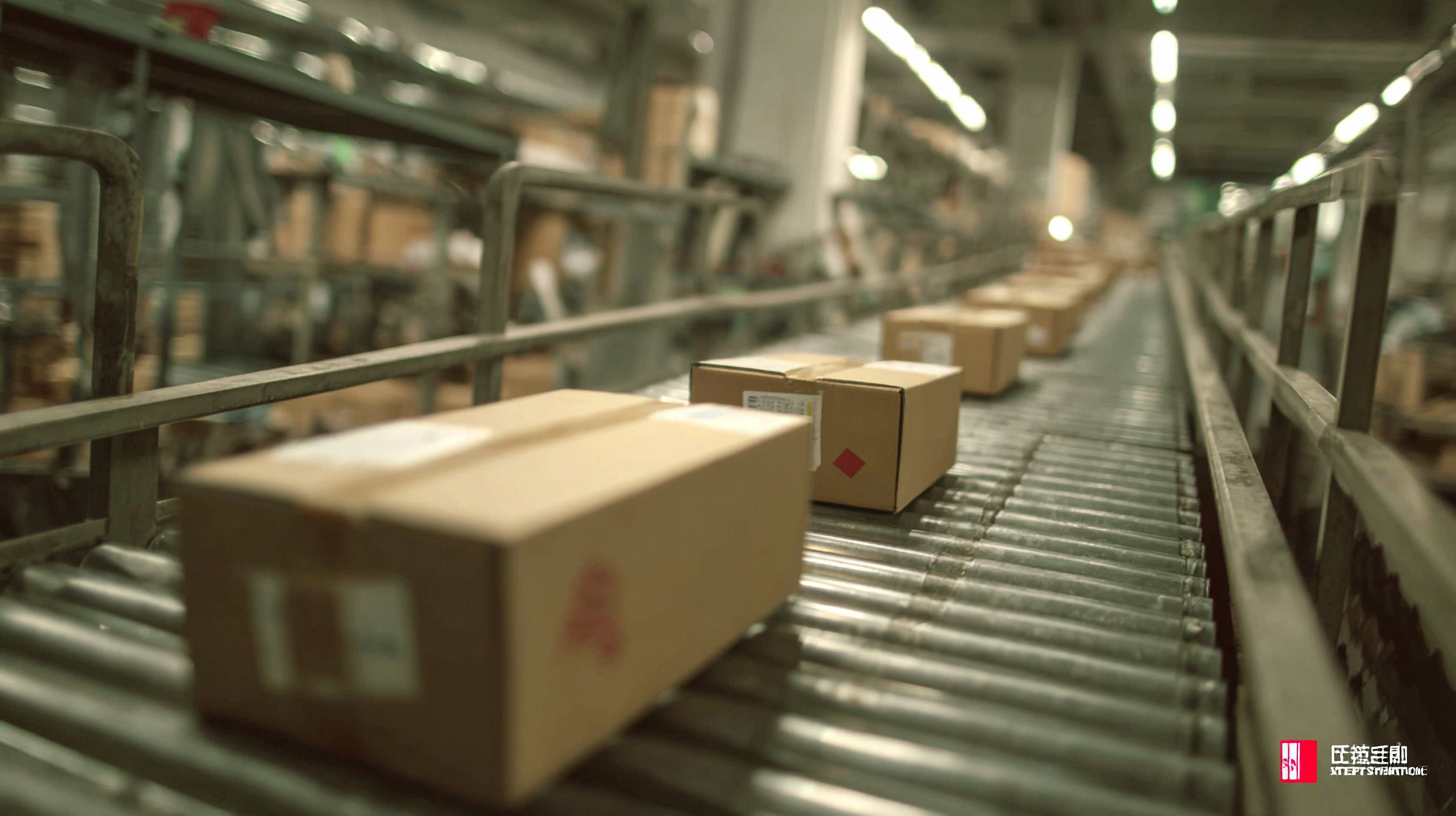
Discover Exceptional Shipping Packaging Solutions from Top Manufacturing Facilities in China
In an increasingly globalized economy, the demand for efficient and reliable shipping packaging solutions has skyrocketed. According to a recent report by Smithers Pira, the global market for packaging is projected to reach $1 trillion by 2024, showcasing the critical role of innovative packaging in logistics.

With China being one of the leading manufacturing hubs, companies are increasingly turning to its top facilities for exceptional shipping packaging solutions that not only protect goods during transit but also enhance brand visibility. The quest for sustainability has further driven advancements in packaging materials and design, prompting manufacturers to adopt eco-friendly practices as noted in a study by the World Packaging Organization.
By exploring the landscape of shipping packaging solutions from China's top manufacturers, businesses can discover strategies to optimize their supply chains, reduce costs, and minimize environmental impact while meeting the high expectations of today's consumers.
Identifying the Best Manufacturing Facilities for Shipping Packaging in China
When seeking exceptional shipping packaging solutions, identifying the best manufacturing facilities in China is paramount. With China accounting for over 30% of the global packaging market, small and large businesses alike benefit from tapping into this resource. According to a recent report by Smithers Pira, the packaging sector in China is projected to grow at a CAGR of 5.3% from 2020 to 2025, indicating an escalating demand for innovative and reliable packaging solutions.

When evaluating manufacturing facilities, consider their certifications and compliance with international standards such as ISO 9001 and FSC (Forest Stewardship Council) certifications. Facilities that adhere to these standards often demonstrate a commitment to quality and sustainability, ensuring that your packaging not only meets regulatory requirements but is also environmentally friendly.
Tip: Always request client references and case studies to gain insights into a facility's operational efficiency and product quality. Assessing their production capabilities and technological advancements can provide assurance in their ability to fulfill your packaging needs effectively. Moreover, ensure that the facility has a proven record of timely delivery, as this can significantly impact your supply chain efficiency.
Key Features of High-Quality Shipping Packaging Solutions
The demand for exceptional shipping packaging solutions has never been more critical, particularly in sectors such as electronics, pharmaceuticals, and food and beverage. The global market for electronic anti-static films, crucial for protecting sensitive devices like smartphones and televisions, is anticipated to see significant growth through 2034. As technology advances, the sustained growth in mobile and electronic device production will drive the need for high-quality packaging, with compound annual growth rates exceeding 8.8% projected in various segments.
In the realm of biopharmaceuticals, the packaging market is expected to reach a staggering $21.3 billion by 2024, driven by the rising prevalence of chronic and lifestyle diseases. This growth underscores the necessity for advanced packaging solutions that not only secure the products but also comply with stringent regulatory requirements. Similarly, the beer bottle market is poised to grow from $4.37 billion in 2025 to $28.93 billion by 2033, reflecting a stable CAGR of 5.3%.
Additionally, the trend towards sustainable and innovative materials is sweeping through the vacuum skin packaging industry, with companies focusing on developing thinner, high-barrier films. These advancements aim to reduce plastic usage while enhancing product protection and freshness. As the industry continues to evolve, the integration of smart automation in packaging processes will further transform the landscape, empowering manufacturers with efficient and eco-friendly solutions.
Understanding the Role of Customization in Shipping Packaging Efficiency
In today's rapidly evolving market, the importance of customization in shipping packaging cannot be overstated. Businesses are increasingly leveraging mass customization to engage consumers in a meaningful way. A recent initiative allowed consumers to personalize cereal cartons, underscoring how tailored packaging not only enhances brand loyalty but also serves a public health message. This trend highlights a shift towards consumer-centric approaches in packaging, making products resonate more deeply with individuals.
As manufacturers adapt to the growing demand for personalized solutions, facilities are springing up to support this trend. For instance, the establishment of a new customization center on the West Coast is a testament to the expanding interest in tailored packaging opportunities, especially in eCommerce. The custom packaging market is projected to experience significant growth in the coming years, and businesses that tap into these innovative solutions can not only enhance their packaging efficiency but also drive customer engagement through personalized experiences. This makes understanding the nuances of customization vital for companies looking to thrive in a competitive landscape.
Discover Exceptional Shipping Packaging Solutions from Top Manufacturing Facilities in China - Understanding the Role of Customization in Shipping Packaging Efficiency
| Packaging Type | Material | Customization Options | Weight Capacity | Cost per Unit |
|---|---|---|---|---|
| Corrugated Boxes | B flute, C flute | Size, Print, Finish | Up to 50 lbs | $0.50 |
| Plastic Wrap | Polyethylene | Thickness, Color | N/A | $0.10 |
| Bubble Mailers | Kraft Paper with Bubble Lining | Size, Logo Print | Up to 10 lbs | $0.75 |
| Foam Inserts | Polyurethane | Shape, Density | Variable | $1.50 |
| Shrink Film | Polyolefin | Width, Thickness | N/A | $0.20 |
Exploring Sustainability Trends in Shipping Packaging Materials
In recent years, sustainability has become a key focus in shipping packaging solutions. As consumers increasingly demand eco-friendly options, manufacturers in China are leading the way by adopting more sustainable practices in their production processes. From biodegradable materials to recyclable packaging, these innovations are not only beneficial for the environment but also align with global trends towards reducing carbon footprints. The shift towards sustainable packaging reflects a growing recognition of the important role that packaging plays in overall sustainability efforts.
Manufacturers are exploring various materials and technologies to enhance the sustainability of shipping packaging. Companies are investing in research to create effective packaging solutions that use less plastic and incorporate renewable resources. For example, the use of paper-based alternatives and compostable films has gained traction, providing businesses with options that minimize environmental impact without sacrificing performance. This commitment to sustainability is not just a trend; it represents a fundamental change in how shipping packaging is approached in the manufacturing sector, positioning China as a leader in the global market for eco-conscious packaging solutions.
Shipping Packaging Materials Sustainability Trends
Analyzing Cost-Effectiveness of Shipping Packaging Solutions from China
 When it comes to shipping packaging solutions,
cost-effectiveness is a crucial factor for businesses seeking to optimize their operations.
China, known for its robust manufacturing capabilities,
offers a wide array of options that cater to different needs while remaining budget-friendly.
By analyzing various shipping packaging solutions, companies can identify the most economical choices
without compromising quality.
When it comes to shipping packaging solutions,
cost-effectiveness is a crucial factor for businesses seeking to optimize their operations.
China, known for its robust manufacturing capabilities,
offers a wide array of options that cater to different needs while remaining budget-friendly.
By analyzing various shipping packaging solutions, companies can identify the most economical choices
without compromising quality.
One of the significant advantages of sourcing packaging materials from China is the
competitive pricing, driven by economies of scale and
advanced manufacturing techniques. Facilities in regions such as Guangdong
and Zhejiang have invested heavily in technology, allowing them to
produce high-quality packaging at lower costs. Furthermore, many manufacturers offer
customization options that ensure businesses can maintain their branding
while achieving cost savings.
Additionally, the global supply chain has increasingly favored sourcing materials from China due to reduced
shipping costs when ordered in bulk. This trend enables companies to benefit from lower unit prices as they
meet their packaging needs efficiently. By analyzing cost-effectiveness, businesses can make informed decisions
that lead to enhanced operational efficiency and improved profit margins, making Chinese packaging solutions
an attractive option in the global market.



